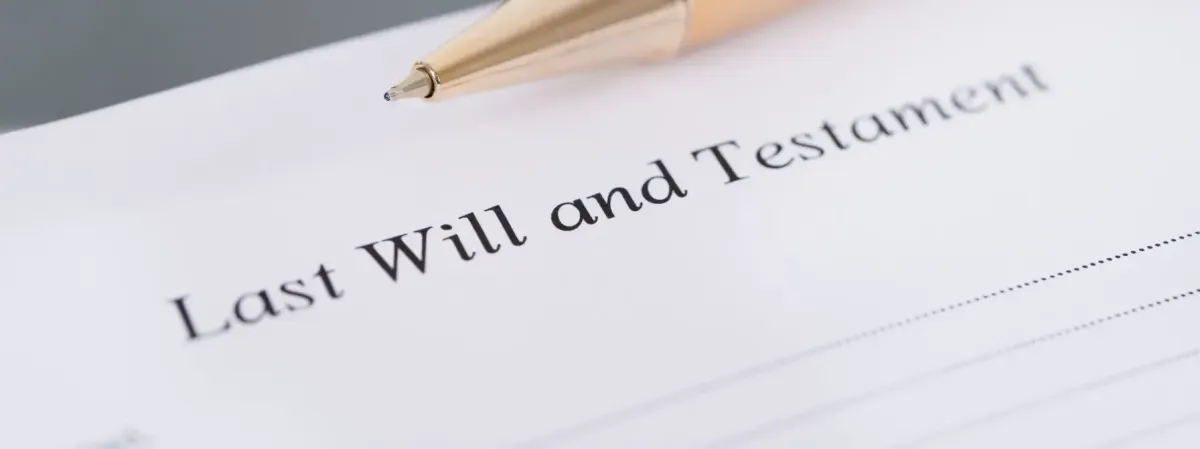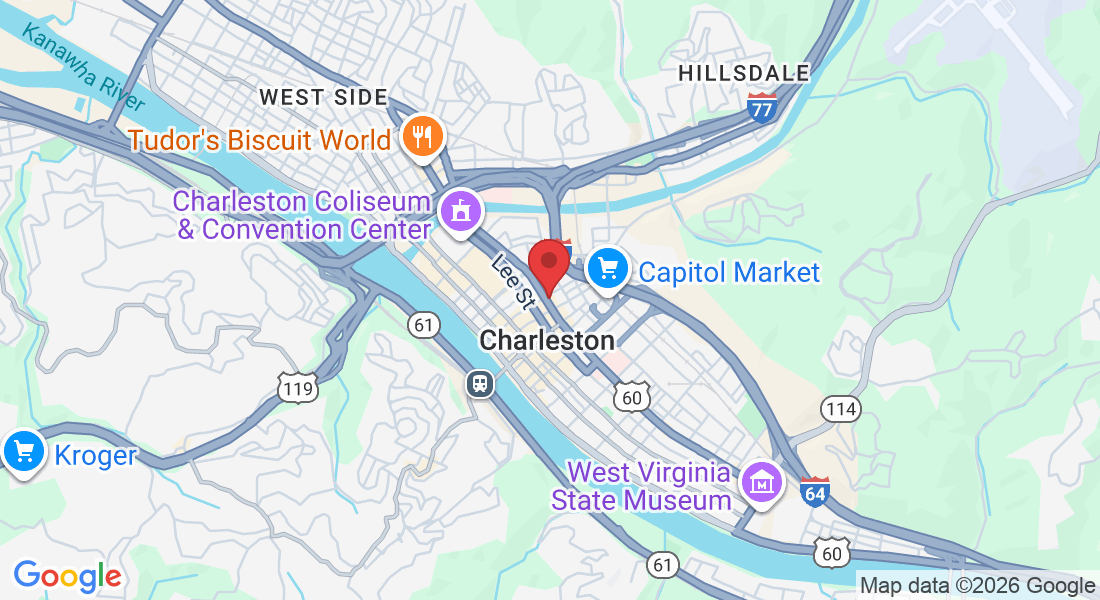
What Happens If You Die Without a Will in West Virginia?
What Happens if You Die Without a Will in West Virginia? A Simple Legal Breakdown
When you die without a will in West Virginia, the state’s intestate succession laws determine the distribution of your assets. These laws decide who inherits your property, pays your debts, and handles your financial matters when you have not left any instructions. This article explains the essentials of intestacy in West Virginia and why having a will is important.
Key Takeaways
Without a will, state intestate succession rules apply.
Certain assets are distributed under these rules while others bypass them.
The intestate process often involves lengthy court proceedings and potential family disputes.
Having a will allows you to designate beneficiaries and avoid legal conflicts.
Understanding Intestacy in West Virginia
Dying without a will makes you “intestate,” so West Virginia law determines how your assets are distributed. The state follows a set hierarchy based on familial relationships. Typically, your spouse and children are first in line, though the process can vary in blended families or when close relatives are absent.

What It Means to Die Without a Will
Dying without a will means your final wishes are not recorded. The court then follows statutory guidelines to divide your assets. As a result, your heirs receive what the law dictates rather than what you might have preferred.
How West Virginia Defines Intestate Succession
The state’s intestate laws assign your estate to heirs based on kinship. The surviving spouse and children are given priority; if none exist, parents, siblings, and more distant relatives may inherit. This method ensures a uniform, though impersonal, distribution of your property.
Which Assets Are Subject to Intestate Laws
Assets included in your probate estate—such as real property solely in your name, personal belongings, bank accounts without beneficiaries, and sole business interests—are subject to these laws. The court evaluates and distributes these assets among the heirs according to state guidelines.
Which Assets Bypass Intestate Succession
Certain assets avoid probate and are not governed by intestate laws. These include life insurance proceeds with named beneficiaries, retirement accounts with designations, and jointly owned properties with rights of survivorship. Proper planning can help ensure these assets transfer outside of probate.
The Intestate Succession Process
When you die intestate, the probate court plays a crucial role in overseeing the distribution of your estate. The court’s involvement guarantees that assets are divided according to state law, but it also opens the door for delays and disputes.
How West Virginia Courts Handle Estates Without a Will
Probate courts assess assets, identify heirs, and appoint a personal representative to manage the estate. Although this process is designed to be fair, it often takes a long time and increases legal expenses. Disputes among heirs may force the court to make decisions that do not necessarily reflect your personal intentions.
Appointing a Personal Representative
The court appoints a personal representative (or executor) to collect assets, settle debts, and distribute what remains. This role typically goes to a close family member; if none is available, a neutral party may be chosen—a decision that can complicate the process and lead to family disagreements.
Timeline for Settling an Intestate Estate
Settling an intestate estate can vary from several months to well over a year, depending on the estate’s complexity and any disputes among heirs. The longer process can strain finances due to ongoing legal fees and reduced asset values.
Paying Debts and Taxes Before Distributions
Before distributing any assets, the estate must pay off debts, taxes, and administrative costs. Creditors are prioritized, and this expense may significantly decrease the amount available to heirs. Identifying and settling valid claims can further delay asset distribution.
Who Inherits What: Distribution Rules

West Virginia law clearly defines the order of inheritance for intestate estates based on family relationships.
What the Surviving Spouse Is Entitled To
A surviving spouse typically receives a major portion of the estate. If children are present, the spouse may share the estate with them, often receiving a statutory portion. In the absence of children, the surviving spouse may inherit the entire estate, ensuring their financial security.
What Children Receive
Children usually inherit next. When a spouse is alive, children share the remaining assets equally. Without a spouse, the children inherit everything in equal shares. The law treats all children equally, regardless of whether they are born within or outside of marriage.
If There’s No Spouse or Children: Parents, Siblings, and Other Relatives
If you have no spouse or children, the estate passes first to your parents and then to siblings. In the absence of these close relatives, more distant family members such as grandparents, aunts, uncles, or cousins may inherit. This system keeps assets within the family, although disputes over relationships can complicate the process.
What Happens When No Relatives Are Found (Escheat to the State)
If no eligible relatives are located, the estate escheats, meaning it reverts to the state of West Virginia. This outcome is undesirable for most and underscores the importance of creating a will to ensure your assets go to your chosen beneficiaries.
Special Family Situations
Certain family situations can further complicate intestate succession. Blended families, adopted children, posthumously born children, and half-siblings often encounter unique challenges under the standard intestate rules.
Blended Families and Stepchildren
In blended families, stepchildren typically do not inherit unless legally adopted. This can leave long-term partners or stepchildren without support, highlighting the need for explicit estate planning.
Adopted Children’s Rights
Adopted children have the same rights as biological children under West Virginia law. However, without a will, misunderstandings may occur regarding family relationships, potentially leading to disputes that a clear will would have avoided.
Posthumously Born Children
Children born after the decedent’s death are eligible to inherit if legally recognized. Verifying their birth and relation can delay the estate’s settlement and add complexities to the probate process.
Half-Siblings and Other Extended Family
Half-siblings and distant relatives have more limited rights. Their claims are only considered if there are no closer heirs, and disputes over their entitlement can complicate the division of assets.
How Different Property Types Are Handled
Different assets require tailored approaches during probate. West Virginia law treats various property types in distinct ways, which is important for both estate planning and for heirs.
Real Estate Distribution
Real estate solely owned by the decedent goes through probate and is divided according to intestate succession rules. Jointly held real estate, however, passes directly to the surviving owners, bypassing the probate process.
Bank and Investment Accounts Without Named Beneficiaries
Bank accounts, investments, and retirement funds without designated beneficiaries become part of the probate estate. As a result, these assets are divided according to state law rather than by personal choice.
Household Goods and Personal Belongings
Personal items and household goods fall under probate if there are no explicit instructions. They are divided based on statutory guidelines, which can lead to disagreements among heirs due to their sentimental or subjective value.
Sole Proprietor Business Interests
For sole proprietorships, the business is included in the probate estate. Its value is determined during probate, and debts must be settled before any remaining value is distributed. Without a clear plan, business succession may not follow the decedent’s intended vision.
Challenges of Dying Without a Will
Dying without a will creates multiple challenges. The intestate process often results in delays, higher costs, and conflicts among family members.
Family Disputes and Legal Conflicts
Without clear guidance, family members may disagree about asset distribution, leading to legal battles that drain the estate’s value and create lasting tension.
Difficulty Locating Heirs
When family relationships are complex or poorly documented, finding all potential heirs can be challenging. This may delay probate and result in unintended exclusions from the final distribution.
Higher Costs and Delays in Probate
Intestate estates typically require extensive court involvement, legal fees, and administrative work. These higher costs lessen the overall assets available for distribution and can burden heirs financially.
Lack of Control Over Asset Distribution
Without a will, you lose the chance to dictate how your assets are divided. The court’s decision, based solely on legal guidelines, might not align with your personal wishes or the needs of your loved ones.
Why You Should Create a Will in West Virginia

Creating a will is essential for ensuring your assets are distributed according to your wishes. It allows you to bypass many of the uncertainties and complications of the intestate process.
How a Will Overrides Intestate Laws
A valid will supersedes state intestate succession laws. By clearly stating your wishes, you control asset distribution, avoiding the randomness of statutory division and minimizing family disputes.
Protecting Minor Children with Guardianship Designations
A will allows you to name guardians for your minor children. This ensures that the care of your children is handled according to your preferences rather than leaving the decision to the courts.
Avoiding Unnecessary Conflict Through Clear Instructions
Clear instructions in a will reduce the likelihood of disputes among heirs, cutting down on costly legal battles and preserving family harmony during a difficult time.
Starting the Process: How to Create a Will in WV
Creating a will in West Virginia involves documenting your assets, deciding on beneficiaries, and naming a reliable personal representative. It is advisable to consult an estate planning attorney to meet legal requirements and ensure that your wishes are enforced.
Final Thoughts
Passing away without a will in West Virginia means the state—not you—decides how your assets are divided. This can lead to delays, added expenses, and potential disputes among loved ones. At Chris Pritt Law, we help you take control of your legacy through thoughtful, personalized estate planning. Creating a will ensures your wishes are honored, your family is protected, and unnecessary stress is avoided. Let Chris Pritt Law guide you through the process and give you the peace of mind that comes with planning ahead.
Frequently Asked Questions
Q: What does it mean to die intestate in West Virginia?
A: It means you have no will, so state laws decide how your assets are divided.
Q: Who typically inherits if there is no will?
A: Generally, the surviving spouse and children inherit first, with parents, siblings, or distant relatives following if no immediate family is available.
Q: What assets bypass intestate succession?
A: Assets like life insurance proceeds, retirement accounts with designated beneficiaries, and jointly held property bypass the probate process.
Q: How can creating a will help avoid probate delays?
A: A will provides clear instructions for distribution and names a personal representative, which reduces court involvement and speeds up the process.
Q: Do intestate laws apply to business interests?
A: Yes. For sole proprietorships without a designated succession plan, business interests become part of the probate estate and are distributed under state laws.
Disclaimer: This article is for informational purposes only and does not constitute legal advice. For advice specific to your situation, consult a qualified attorney.


